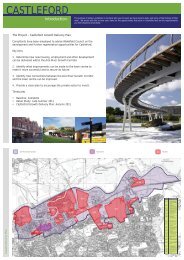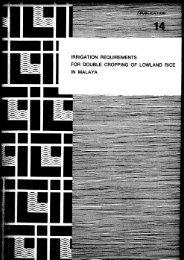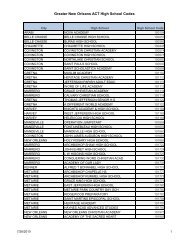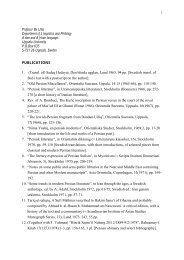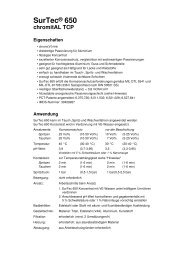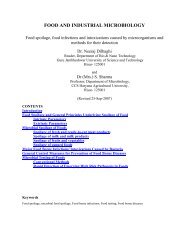On the Future of Indigenous Traditions - Munin
On the Future of Indigenous Traditions - Munin
On the Future of Indigenous Traditions - Munin
Create successful ePaper yourself
Turn your PDF publications into a flip-book with our unique Google optimized e-Paper software.
tribal policy <strong>of</strong> <strong>the</strong> colonial and post colonial Indian state [see it] in <strong>the</strong> dynamics <strong>of</strong><br />
<strong>the</strong> colonial nationalist discourse.” 109<br />
In his same study <strong>of</strong> Jharkhand’s ‘Politics <strong>of</strong> Development and Identity’ Prakash<br />
highlights <strong>the</strong> issues between <strong>the</strong> ethnic identity (/ies) in <strong>the</strong> face <strong>of</strong> <strong>the</strong> national<br />
identity. Here can we place <strong>the</strong> “tribe” as an ethnic group and <strong>the</strong> “caste” – as a wider<br />
understanding, <strong>of</strong> national identity, since <strong>the</strong> Indian nation-state is largely a<br />
composition <strong>of</strong> caste based societies where <strong>the</strong> “tribe” is a negligible minority [–<br />
emphasis mine]. Prakash, making references to Nevitte and Kennedy (1986), Smith<br />
(1981), and again Smith (1986), and Barth (1969) and presents that <strong>the</strong> two identities<br />
(ethnic and national or sub-national) can also be differentiated in terms <strong>of</strong> demands<br />
<strong>the</strong>y make on political processes. Largely, national identities (in <strong>the</strong> case <strong>of</strong> Jharkhand<br />
<strong>the</strong> sub-national identity) might be included to seek statehood, where as ethnic<br />
identities might seek autonomy and adequate representation within <strong>the</strong> existing State.<br />
110 (‘State’ with an upper case here is in reference to political concept <strong>of</strong> a State, and<br />
‘state’ with a lower case is for a state within <strong>the</strong> India, i.e. a province.)<br />
Fur<strong>the</strong>r, Prakash based on Brass’s conception, says that:<br />
“An ethnic identity is <strong>the</strong>refore ‘a subjectively self conscious community that establishes<br />
criteria for inclusion and exclusion from <strong>the</strong> group. This inclusion or exclusion from <strong>the</strong> group<br />
hence, involves explicit or tacit adoption <strong>of</strong> rules <strong>of</strong> endogamy or exogamy as well as a claim<br />
to status and recognition, ei<strong>the</strong>r as a group at least equal to o<strong>the</strong>r groups.’ Thus, ethnicity<br />
emerges as ‘an alternate form <strong>of</strong> social organisation’ but is a contingent and mutable status<br />
that may or may not be articulated in a particular context or time. Fur<strong>the</strong>r on, ethnic groups<br />
may tend to seek a major say in <strong>the</strong> political system in order to protect, preserve and promote<br />
<strong>the</strong>ir interests. This may lead to an ethnic group aspiring for a national status and/or political<br />
recognition, ei<strong>the</strong>r within an existing State or as a new State.” 111<br />
109<br />
Amit Prakash, Jharkhand Politics <strong>of</strong> Development and Identity (New Delhi: Oriental Longman,<br />
2001), xiii.<br />
110<br />
Amit Prakash, Jharkhand Politics <strong>of</strong> Development and Identity (New Delhi: Oriental Longman,<br />
2001), 2-4.<br />
111<br />
Paul R Brass, 1991. Ethnicity and Nationalism: Theory and Comparison. New Delhi: Saga<br />
Publication, 1991), 14 cited by Amit Prakash, Jharkhand Politics <strong>of</strong> Development and Identity, op. cit.,<br />
6-7.<br />
72



